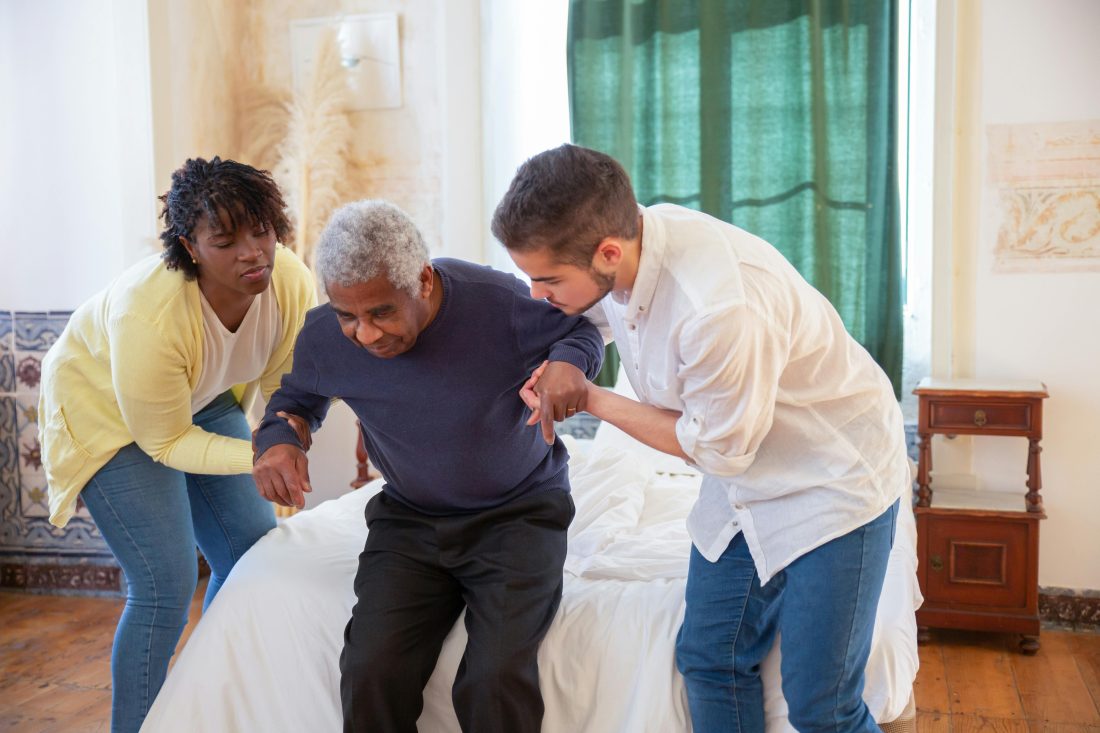Incontinence is regarded primarily as a physical condition, but its psychological impact is just as severe. People living with incontinence may feel shame, irritation, worry, and depression, which can further complicate daily life.
If you are caring for someone living with incontinence, whether they are a loved one or a client, your support can make all the difference.
Making the person feel heard, respected, and in charge of their daily routine works magic in restoring their confidence. And yes, this includes helping them with what they’re wearing, communicating effectively, and helping maintain their home.
These simple acts allow you to construct a kinder and empowering space for an incontinence sufferer as you help them recognize that you understand their needed level of comfort and can assist with their emotional turmoils.
In this blog, we’ll cover ways you can support those living with incontinence.
Understanding the Emotional Toll of Incontinence
Incontinence brings up a whole range of feelings. It’s natural that some might be embarrassed or humiliated by accidents, even if they’re well-managed.
Others are worried about the smell, others are fearful of going out, and others just withdraw from most social activities in general.
This is particularly true for seniors or those learning to adapt to a new injury or diagnosis. They might feel they’ve lost some level of control or independence, which can gnaw away at their self-esteem in the long term.
What does work is to begin by acknowledging the emotional aspect of incontinence. It’s not “just getting older.” It’s a personal experience, and to treat it as such makes the individual feel heard and cared for, not diminished or dismissed.
Respecting Dignity Through Privacy and Independence
Dignity is not a feeling because it is a product of daily living activities. For an incontinent person, maintaining privacy is one of the best means of defending that dignity.
Whether you’re assisting with clothes changes, laundry, or baths, be sensitive to how much control and privacy you can provide. Knock on the door before you come in. Give things at their level rather than handing them to them directly. Let them take charge whenever possible.
This is where the proper home care setup can help. Devices such as heavy-duty medical beds and pressure ulcer prevention solutions improve safety and comfort, as well as allowing individuals to be less dependent when being transferred in and out of bed. The more independent the individual is, the more confident they’ll be.
Communication Is Key: Creating a Safe Space to Talk
It can feel uncomfortable to discuss incontinence, but it makes things harder when you don’t discuss it. Setting up a shame-free environment to discuss personal care needs promotes trust and confidence.
Begin with open-ended, respectful questions such as:
- “Is there anything I can do to make it easier for you today?”
- “Would you like to try on other products or routines that feel more comfortable?”
Avoid language that feels infantilizing or clinical. Instead of saying “accident,” try “episode” or “leak.” Instead of “diaper,” say “protective wear” or just “your product.” Little shifts in wording can make a big emotional impact.
Most importantly, listen. When they’re ready, let them guide the conversation, and resist the urge to take over the decision-making process. You’re there to support, not control.
Helping Someone Rebuild Confidence and Self-Worth
It’s difficult to like yourself when your body isn’t working the way it’s supposed to. That’s why support—your tone, your patience, your encouragement—is as crucial as physical care.
Reinforce the idea that incontinence does not define them. It’s something that they must endure, but it does not define who they are. Offer them small wins like dressing by themselves, managing their own supplies, or just getting through the day without fear or judgment.
You can also encourage social interactions and hobbies that improve someone’s mood and sense of purpose. When someone feels productive or connected, they will not have as much time to dwell on setbacks.
Your attitude and empathy set the stage. If you make them feel like an able adult, they will begin to think of themselves in that way again.
Choosing Adaptive Clothing That Feels Empowering
Clothing may unexpectedly influence a person’s emotional health. If one is unable to dress or feels ashamed about leaks visible through the clothing, this is something else to concern oneself with.
That’s why adaptive incontinence clothing can be a blessing. These clothes are made to provide function and fashion with easy-open panels, built-in absorbency, sneaky cuts, and wearable materials.
When clothes provide independence and dignity, people’s confidence is boosted. And if they think the clothes are fashionable, even better. No one wants to wear something that looks like a hospital gown.
Adaptive clothing also simplifies your life as a caregiver. You can easily support them in making changes in a less intrusive manner, reducing embarrassing moments for both of you.
Building a Supportive Environment at Home and Beyond
When you are suffering from incontinence, there are moments when physical surroundings can be stressful or calming. Some simple changes at home can establish an atmosphere that promotes emotional calm.
- Add waterproof mattress protectors without compromising fashion and function to the bed.
- Ensure bathrooms are accessible, well-lit, and supplied.
- Store protective products in fashionable storage bins so they are out of view while easily accessible.
- Install grab bars or raised toilet seats to minimize the risk of falling and promote independence.
If they are anxious about going out of the house, plan trips ahead of time around the location of bathrooms.
Carry a small go-bag inconspicuously with double products, wipes, and spare clothes. Role-play together, such as what if there is an accidental leak when they step out, and give them control.
Small changes eliminate some of the fear and uncertainty that can fuel emotional stress.
When to Seek Professional Help
Occasionally, incontinence takes a toll that an in-home supportive care system cannot repay. In case the patient appears to be chronically depressed, anxious, or withdrawn, urge them to see a physician or mental health professional.
There are also pelvic health or continence management specialists. These specialists can provide physical therapy, dietary modification, or new habits that make incontinence easier to handle.
Don’t forget to suggest availing of emotional resources. Online or offline support groups can be a godsend to those who feel alone in their condition.
Sharing the experience of daily life with incontinence with other people who have been through the same thing removes stigma and makes it feel more normal.
If you’re a caregiver, don’t forget your own mental health. Supporting someone through incontinence is rewarding, but it can also be draining. Lean on professional resources when needed.
Conclusion
Caring for an incontinent person isn’t just about catching accidents. It’s about maintaining dignity, restoring confidence, and being compassionate with each incident.
By focusing on open communication, gentle routines, and assistive tools like adaptive clothing, you can help people feel more independent in taking charge of their body and life.
Incontinence may now be part of their lives, but it doesn’t have to be the defining part.To better understand how adaptive apparel can support those living with incontinence, you can explore examples of clothing designed for comfort, ease, and dignity at Joe & Bella.


